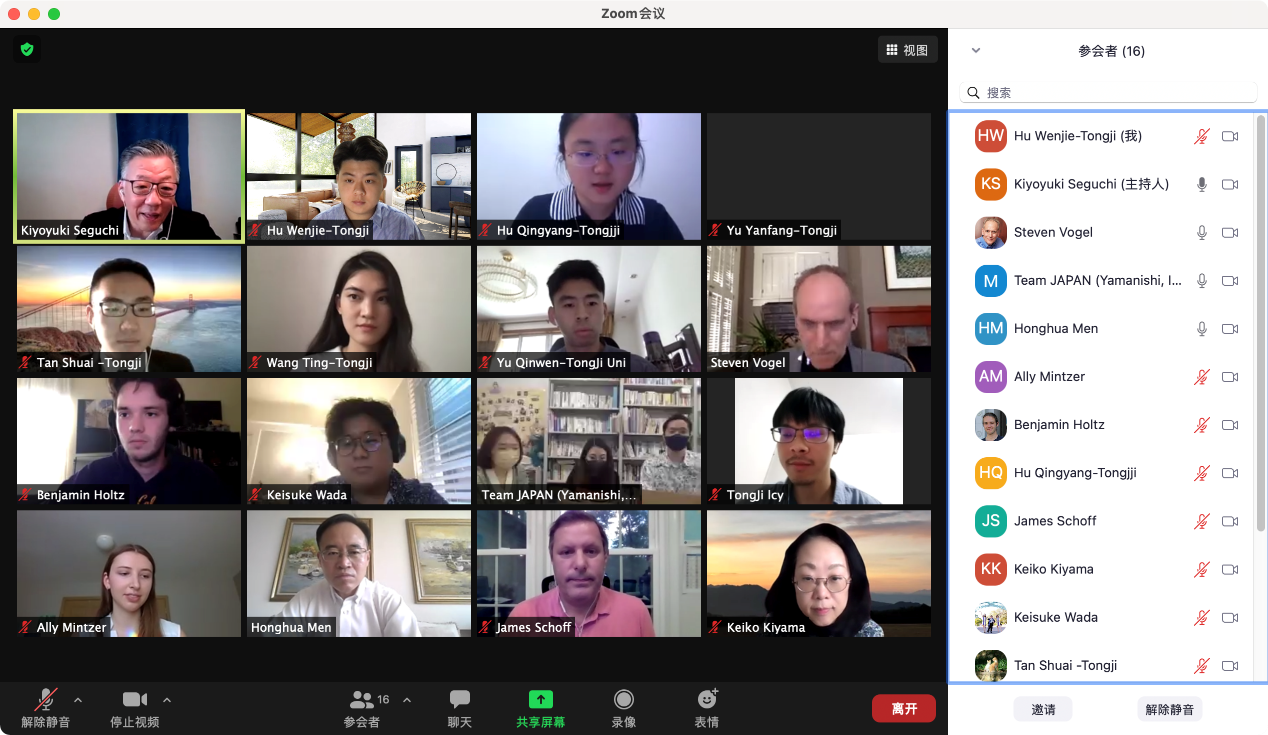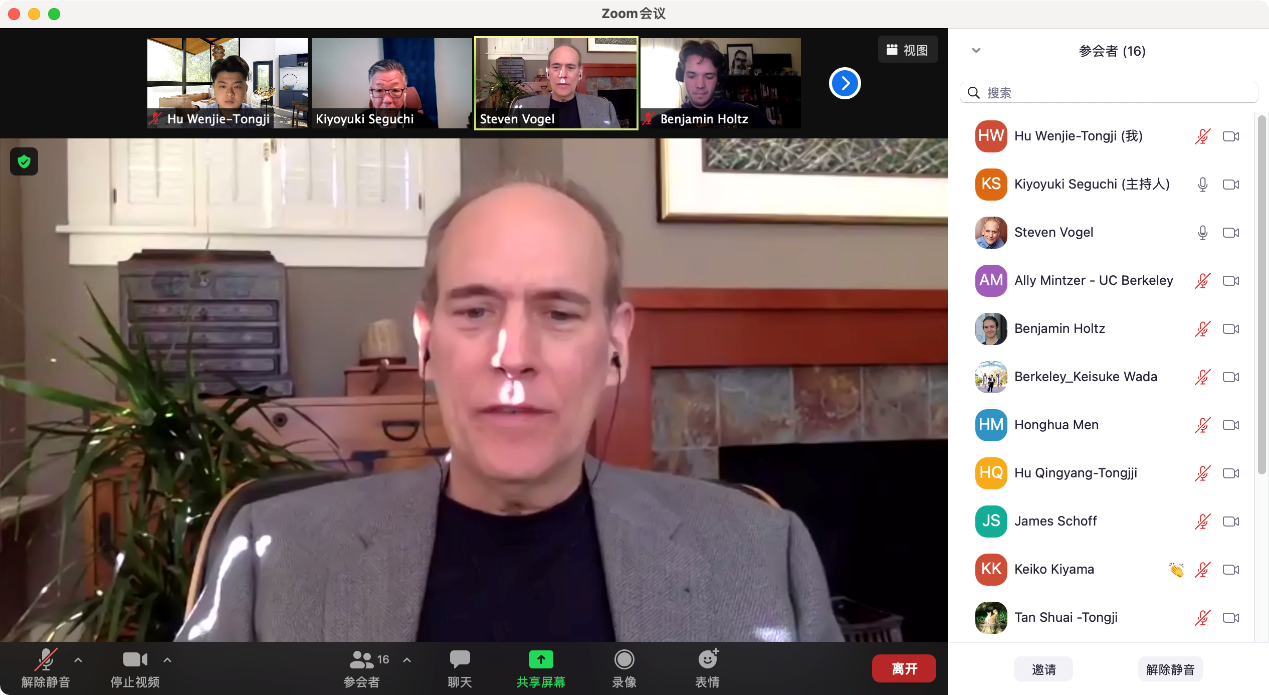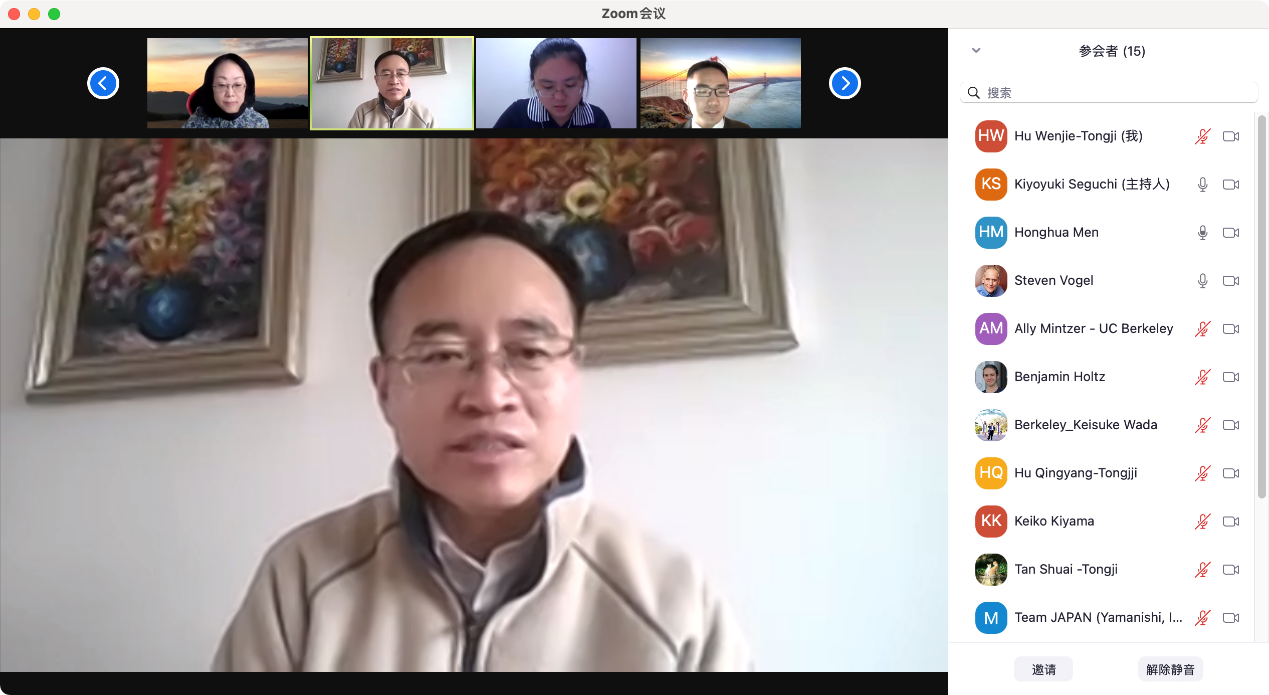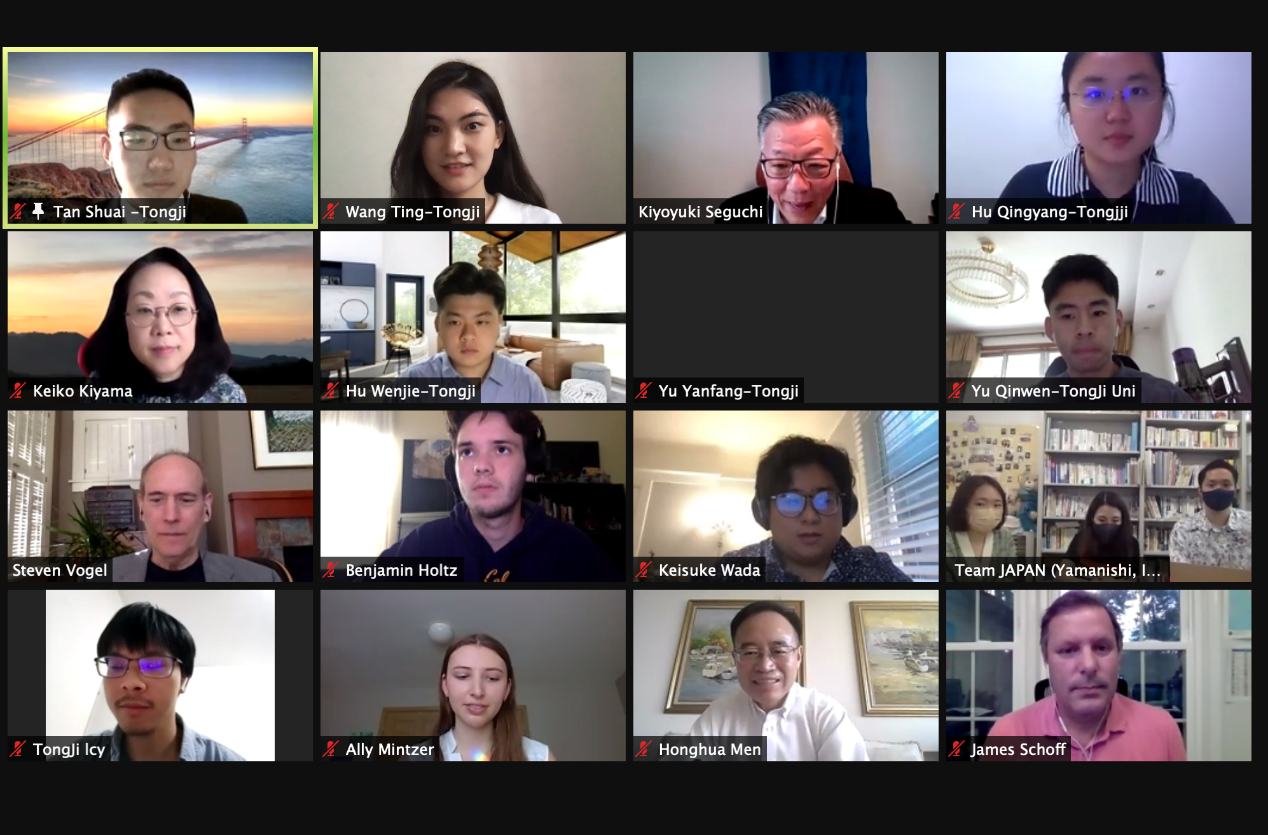International Programs



The fifth meeting of the Steering Committee of Global Order Formation Project successfully held
Organized by political science elites from China, Japan, the United States, Germany, France and other countries, the fifth meeting of the Steering Committee of Global Order Formation Project was successfully held via ZOOM on May 5, 2021. Professor Men Honghua, President of the Institute for China & World Studies of Tongji University, Mr. Kiyoyuki Seguchi, Research Director of the Canon Institute for Global Studies (CIGS), Ms. Keiko Kiyama, Mr. Steven Vogel, a Professor of Political Science at the University of California, Berkeley, Mr. James Schoff, a senior fellow in the Carnegie Asia Program at the Carnegie Endowment for International Peace, together with other members of the Project Steering Committee attended this meeting that was moderated by Mr. Kiyoyuki Seguchi, an expert on Japanese and Chinese economic issues. Three master candidates from UC Berkeley, three master candidates from the University of Tokyo, and three doctoral candidates, three master candidates and one undergraduate from Tongji University joined the meeting and delivered keynote speeches.
Mr. Kiyoyuki Seguchi extended a sincere welcome to the students from UC Berkeley, the University of Tokyo and Tongji University, and made a brief introduction of the Global Order Formation Project. He said that against the background of the structural impasse of the current world order, the Project aims to explore and communicate the renewal and evolution of the global governance structure. He added that the current global order is based on Western social thought, relies on states and rules, and is advanced by the state apparatus. The way to break the impasse is to build a global order that integrates Eastern philosophical thoughts represented by China and Japan, and promote the global order formation that integrates and balances Chinese and Western cultures, relying on non-state actors and morality.

Team Berkeley led by Prof. Steven Vogel, son of renowned China expert Ezra F. Vogel, introduced the Environmental Social Governance (ESG) model from its concepts, principles, indicator system, and mobilization strategy. The team found through case study and theoretical assumption that the younger generation has shown great interest in global issues such as climate change, wage inequality, regional development gaps, and social injustice, and is working to build a multilateral platform to participate in global governance through network. According to the team, the ESG performance model can be used as a pilot case and an open discussion platform for governance experiments. With the help of the ESG model, the team conducted research and experiments on the above topics and evaluated corporate ESG performance by creating qualitative and quantitative indicators. Based on that, they designed an international open platform to monitor data changes and timely update and correct the indicator system, and collect and share the data. As a result, they have developed a mobilization strategy for companies, workers and students.

Team Japan made a systemic response to Berkeley Paper by assessing the advantages and limitations of the ESG model and proposing recommendations for improvement. They pointed out that although corporate ESG performance has clear principles, a reasonable indicator system, and an effective mobilization strategy, the model cannot be organically integrated with the goal of Global Order Formation Project, making it unable to fully reflect the basic principles of the Project and the original intention of the Steering Committee. The team suggested that we should look at ESG projects with a broader vision, and take it as an opportunity to develop a more multilateral platform for discussion and cooperation; and we should agree on more goals and principles of the Project, so as to achieve greater progress.

Then, Team Tongji made a presentation on the topic of "Multinational Corporations and the World Order". The team first responded to the ESG model, saying that the model allows us to think about the issue of global order formation from a new, corporate perspective, and it emphasizes the important role of companies, workers and students in global order formation, which is a transcendence of state centrism. Although the ESG model has such problems as idealization and a certain discrepancy with the reality of global order formation, the younger generation is becoming the backbone force making the international order more equitable and rational, and the Project is also developing in a more institutionalized and diversified direction.
Team Tongji also discussed the inherent relationship between non-state actors and international order formation from the perspective of multinational corporations. They pointed out that multinational corporations are becoming increasingly active in a world of complex interdependence, and they have a range of functions like interest safeguarding and expansion, risk assessment and control, and security protection, and play an important role in environmental protection, economic cooperation, international anti-terrorism and other fields. By providing corporate products, taking social responsibilities and other means, multinational corporations have increasingly become important platforms and driving forces for public diplomacy, helping improve national image. Multinational corporations are able to influence international rule-making and agenda-setting, and promote the diversification of global governance actors, which in turn will affect the formation of world order.
Professor Men Honghua, leader of Team Tongji, thanked the students for their innovative responses. He emphasized that we should carefully analyze the meaning of international order, world order and global order. While avoiding the dominance of power politics, we should also emphasize that the global order is the result of progress in multiple fields. We should pay close attention to both the changes in low politics issue-areas such as economy, trade and investment and the changes in high politics issue-areas such as security, politics and diplomacy. He proposed that the teams can look for their own research focus and create a situation of positive interaction and joint discussion.

In the free discussion section, the three teams discussed a wide range of issues including the ESG model and international organizations and the world order, sparking each other’s ideas. This virtual meeting has not only provided suggestions for the follow-up development of Team Berkeley’s ESG model program, but also opened up new frontiers for the Global Order Formation Project.

After two hours of splendid presentations and discussions, students from the three universities said that the Global Order Formation Project is becoming an important platform for the younger generation to participate in global governance. Taking the ESG issue of UC Berkeley as an opportunity, Tongji University and the University of Tokyo will also conduct research on relevant issues. All participants looked forward to the next meeting.